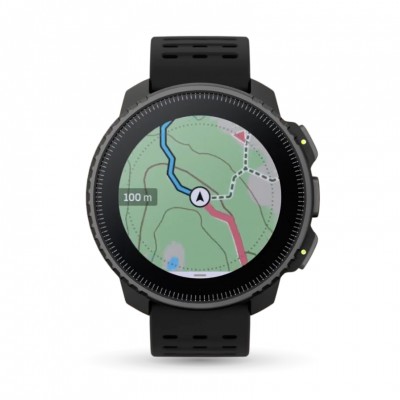Responding to many of the queries that we receive from the loyal users of Runnea, in this post we try to answer that million-dollar question: How many kilometers does the long run have to be, if I want to compete in a half marathon and a marathon? It's a big question, because the competition in long-distance races is not a minor issue, and requires proper advice to train wisely and achieve the goals in the best possible physical shape.
In this sense, our proposal in Runnea is to put ourselves in the expert hands of coaches like Lander Azpiazu or Iker Muñoz, PhD in Physical Activity and Sport Sciences. It is also true that the premise from which we must start is that each runner is a world apart, and each case is particular. Therefore, the training needs will be different for runners with different objectives, because "with an initial goal of under 1 hour 15 minutes in a half marathon, an athlete cannot have the same training plan as one who seeks to cross the finish line of the 21k and with a time greater than the 2 hour 2," says Iker Muñoz, professor and researcher at the University of Deusto.
Therefore, the principle of individualization of training is key for the runner, to progress properly, and even to improve personal bests in successive races of 21k and 42k. And in this principle of individualization of training come into play factors such as:
- The athlete's own physical condition.
- His natural conditions to develop a sporting challenge of these dimensions.
- The athlete's own objectives.
We continue with the conditioning factors because, for example, a beginner in a marathon cannot share the same training plan with a more experienced runner, and who seeks to improve his time in the mythical distance of Philipides.
How many kilometers does the long run have to be in training? Weekly volume!
At Runnea we are not looking for controversy, but it is true that there is some controversy when it comes to establishing the minimum number of kilometers that mark what is a long run. Some say that with 24 kilometers run, we can already talk about long run; while others point out that long run is such when it exceeds 30 kilometers.
However, as with all these unwritten rules, there are nuances, so "it is preferable that your training plan, especially when you are a popular runner, is based on accumulating a higher weekly volume than focusing on a specific session. In this way the body and muscles can gradually adapt to long sessions, we will better control fatigue levels and also allow us to introduce sessions that work other types of content also interesting", clarifies Lander Azpiazu, Runnea coach and Graduate in Physical Activity and Sport Sciences.

Hence, rather than putting the focus on the number of kilometers you have to do to consider long run or not, Runnea coaches establish as a parameter of greater interest the volume of weekly kilometers that enable us to accustom the body to prolonged efforts, and focus the key to success "rather than the distance to run in the preparation time we need to prepare for that next sporting challenge," also indicates Iker Muñoz.
In conclusion, and being honest with ourselves, we have to try to answer the question: Do we have enough training base to run a half marathon or a marathon? Then, we have to demystify it and take away iron to that obsession of long runs in training. "The distance to be covered is very particular and individual. In amateur runners I recommend that long runs be done by time and not by distance, avoiding exceeding approximately 2.5 hours of training in the longest session," says Lander Azpiazu.
So another important premise to bear in mind is:
Running more distances is not always better

So those weekly volumes of kilometers should be based on minimum and maximums, and being aware that if we do not reach those minimums, we will be in trouble to finish the race; and if we are well above the maximums, the risk of overtraining is higher, and therefore the chances of injury are higher.
General parameters in volume of weekly kilometers
However, "the fact that we do high volumes of mileage does not mean that we are prepared, or that it guarantees that we will be successful, because the key is in the relationship between volume and intensity. We must not forget that increasing the training load without control, or in a controlled or scheduled manner, leads to a greater risk of injury," stresses the professor at the University of Deusto.
We emphasize that every runner is different. The following part estimates in terms of weekly kilometer volume, that are associated with general parameters, and also depends on the objectives of the different runner profiles. So:
First-time runner with the goal of being a finisher.
- 21k (half marathon): Between 30 to 40 km per week.
- 42 (marathon): From about 50 km a week.

Non-professional runner with the objective of improving personal bests
- 21k (half marathon): 50 to 70 km per week.
- 42k (marathon): Between 70 to 90 kilometers per week.
After saying all this, the respect for the trainings, the distances and the intensities, together with the progression and the constancy are going to become the basic and necessary ingredients to reach that volume of weekly kilometers, and that will make us arrive with the best of physical form to overcome the objective of running a half marathon or a marathon. At this point, we must also "stress that the estimated recovery time after running a marathon is between 4 to 6 weeks, on average, and that if our training strategy is based on practically running a marathon in each long run we do, we will be out of shape for the race," says Iker Muñoz.
When the day comes to take action and compete in that half marathon or marathon, it is also a good idea to plan both the race strategy to follow, as well as the pace so that our own goals are within reached.
Read more news about: Running Training






















